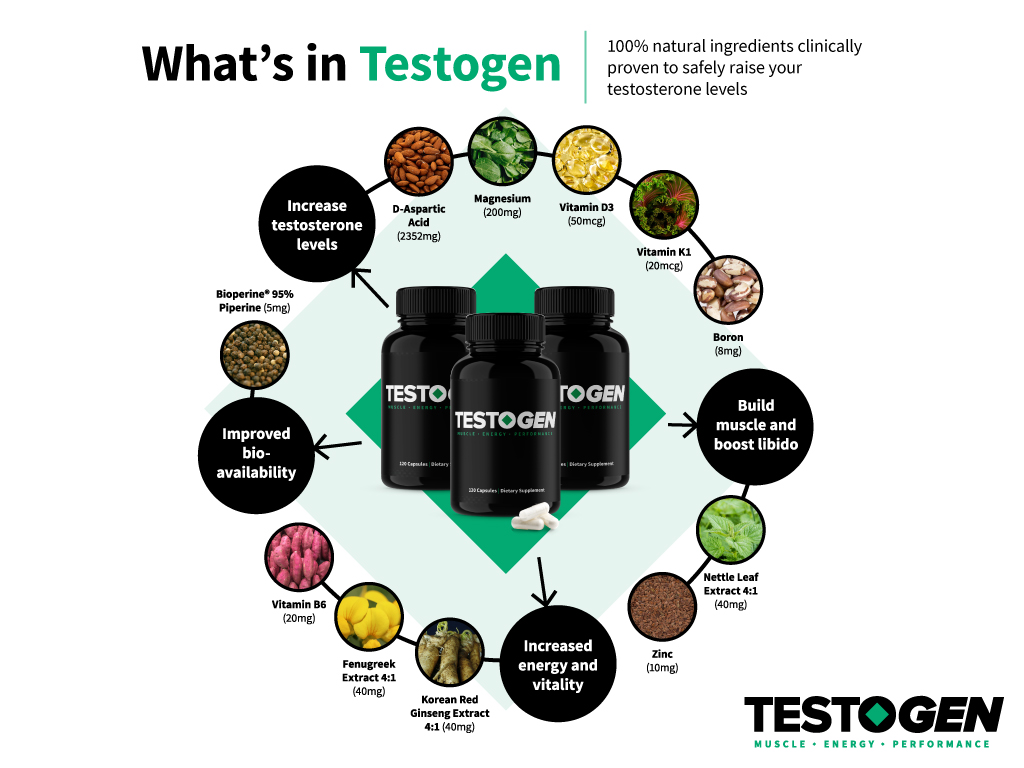Testosterone, often referred to as the “male hormone,” plays a crucial role in both men and women’s health. While it is true that men typically have higher levels of testosterone than women, this hormone offers a wide range of benefits that extend far beyond gender-specific traits. In this article, we will explore the multifaceted advantages of testosterone, its impact on physical and mental well-being, and the various ways in which individuals can maintain healthy testosterone levels.
Ⅰ Testosterone and Physical Health

A. Muscle Mass and Strength
One of the most well-known benefits of testosterone is its role in the development and maintenance of muscle mass and strength. Testosterone stimulates protein synthesis, allowing muscles to grow and repair more efficiently. Consequently, individuals with higher testosterone levels often have a greater capacity for physical performance and strength training.
- Enhanced muscle growth: Testosterone promotes the development of lean muscle tissue, contributing to a more toned and athletic physique
- Improved muscle recovery: Higher testosterone levels aid in quicker recovery from strenuous exercise, reducing the risk of muscle fatigue and injury
B. Bone Density
Testosterone also plays a pivotal role in bone health. It helps maintain bone density and strength, which is crucial for preventing conditions like osteoporosis. As individuals age, declining testosterone levels can lead to decreased bone density and an increased risk of fractures.
- Reduced risk of osteoporosis: Adequate testosterone levels help prevent the weakening of bones, reducing the risk of fractures and promoting overall bone health.
C. Fat Distribution
Testosterone influences fat distribution in the body. Men typically carry less body fat than women, primarily due to their higher testosterone levels. This hormone encourages the accumulation of fat-free mass and the reduction of body fat.
- Improved body composition: Healthy testosterone levels can lead to a more favorable body composition, with a higher proportion of lean muscle and lower body fat.
D. Cardiovascular Healthy
Testosterone can have a positive impact on cardiovascular health. It is associated with various cardiovascular benefits, such as improved blood vessel function and a reduced risk of heart disease.
- Enhanced blood vessel health: Testosterone helps maintain the elasticity and function of blood vessels, reducing the risk of atherosclerosis and high blood pressure.
- Lower risk of heart disease: Some studies suggest that healthy testosterone levels are associated with a reduced risk of heart disease and atherosclerosis.
Read our product review on Testogen which is one of the best testosterone booster in the market!
II. Testosterone and Mental Health

A. Cognitive Function
Testosterone is not only essential for physical health but also for mental well-being. It plays a role in cognitive functions such as memory, spatial abilities, and verbal fluency.
- Enhanced cognitive abilities: Some research suggests that optimal testosterone levels may support better cognitive performance, including memory and problem-solving skills.
B. Mood Regulation
ATestosterone also affects mood and emotional well-being. Low testosterone levels can contribute to mood swings, irritability, and even symptoms of depression.
- Improved mood and emotional stability: Maintaining healthy testosterone levels may help stabilize mood and reduce the risk of mood disorders.
C. Energy and Motivation
Higher testosterone levels are often associated with increased energy levels and motivation. Individuals with adequate testosterone are more likely to have a positive outlook on life and the drive to pursue their goals.
- Increased energy and motivation: Testosterone can boost an individual’s energy levels, drive, and overall zest for life.
III. Testosterone and Sexual Health

A. Libido
Testosterone plays a central role in sexual desire, or libido, in both men and women. It is often referred to as the “sex hormone” for this reason.
- Enhanced sexual desire: Maintaining optimal testosterone levels can help individuals maintain a healthy sex drive and sexual function.
B. Erectile Function
In men, testosterone is critical for maintaining erectile function. Low testosterone levels can lead to erectile dysfunction (ED), a condition that affects a significant number of men as they age.
- Improved erectile function: Adequate testosterone levels support healthy blood flow to the genitals, contributing to better erectile function.
C. Fertility
Testosterone also plays a role in male fertility. It is necessary for sperm production and quality.
- Improved fertility: Maintaining healthy testosterone levels can positively impact a man’s fertility by ensuring adequate sperm production.
IV. Testosterone and Aging

A. Aging and Testosterone Decline
As individuals age, testosterone levels tend to decline naturally. This decline can have various effects on physical and mental health, including reduced muscle mass, bone density, and energy levels.
Mitigating age-related decline: Some individuals explore testosterone replacement therapy (TRT) to counteract the effects of age-related testosterone decline and maintain their quality of life.
B. Testosterone Replacement Therapy (TRT)
TRT is a medical treatment option for individuals with clinically low testosterone levels. It involves the administration of testosterone to restore hormone levels to a healthy range.
- Benefits of TRT: TRT can help individuals with low testosterone levels experience improved muscle mass, energy levels, sexual function, and mood.
- Risks and considerations: TRT is not without risks and should be administered under medical supervision to ensure its safety and effectiveness.
V. Lifestyle Factors to Support Healthy Testosterone Levels
A. Diet and Nutrition
Proper nutrition plays a significant role in maintaining healthy testosterone levels. Certain foods and nutrients can help support testosterone production.
- Protein-rich diet: Consuming sufficient protein is essential for muscle growth and testosterone synthesis.
- Healthy fats: Including healthy fats like omega-3 fatty acids in the diet can help support hormonal balance, including testosterone.
- Nutrient-rich foods: Zinc, vitamin D, and vitamin A are important nutrients for testosterone production and should be included in a balanced diet.
B. Exercise and Physical Activity
Regular physical activity, especially resistance training, can stimulate testosterone production.
- Strength training: Weightlifting and resistance exercises can lead to an increase in testosterone levels, supporting muscle growth and overall health.
- High-intensity interval training (HIIT): HIIT workouts have been shown to boost testosterone levels and improve cardiovascular health.
C. Sleep and Stress Management
Adequate sleep and stress management are critical for maintaining healthy hormone levels, including testosterone.
- Quality sleep: Getting enough restful sleep is essential for hormone regulation and overall well-being.
- Stress reduction: Chronic stress can lead to hormone imbalances, including reduced testosterone levels. Stress management techniques like meditation and mindfulness can be beneficial.
Conclusion
Testosterone is a hormone with a wide range of benefits that extend beyond its stereotypical association with masculinity. It plays a crucial role in physical health, mental well-being, sexual function, and the aging process. Maintaining healthy testosterone levels through lifestyle factors like diet, exercise, sleep, and stress management can have a profound impact on an individual’s overall quality of life.
It is essential to remember that while testosterone offers numerous advantages, hormonal balance is key, and medical consultation is necessary when considering interventions like testosterone replacement therapy. By understanding and harnessing the benefits of testosterone, individuals can lead healthier, more fulfilling lives, regardless of their gender.


